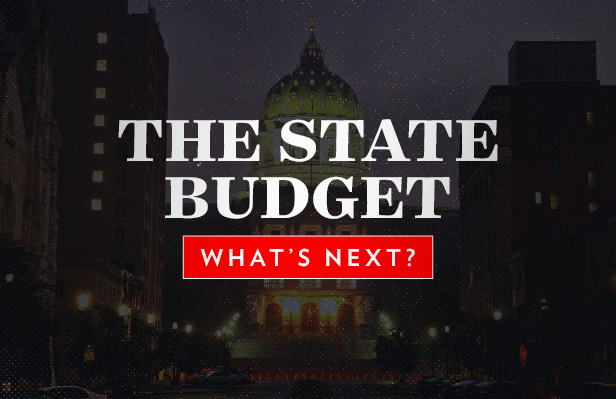Media

The Final Piece of Budget Business in Limbo
After nine months of gridlock, Gov. Tom Wolf finally surrendered his 2015 quest for higher taxes on families and small businesses. On Monday morning, Pennsylvania will enjoy a completed state budget. Finally.
But the governor isn't putting down his veto pen.
Lost in yesterday’s headlines was Wolf's promise to veto the fiscal code, HB 1327, which provides instructions for spending state funds. In January, CF identified dozens of earmarks tucked away in the fiscal code, but the legislation was, on balance, a winner for jobs and students alike.
Lawmakers used the fiscal code to implement a fair education funding formula, protect private school scholarships, and authorize reimbursement for school construction costs. The fiscal code also pushed back against President Obama's energy tax on coal and expansive regulations on natural gas.
Chris Comisac at Capitolwire (paywall) explains Wolf's opposition:
The Fiscal Code bill also contained a new funding formula that would have been used to drive out the $150 million in added basic education funding and a $2.5 billion school construction borrowing plan. That borrowing plan would have delivered construction reimbursements, through the state’s PlanCon program, to school districts throughout the state that have been on a waiting list to receive that money.
Wolf spokesman Jeff Sheridan said the PlanCon borrowing also prompted Wolf’s veto, with Sheridan describing the plan being “prohibitively costly to issue due to inflated debt costs resulting from the lack of any concrete steps in the current budget to address the structural deficit.”
Sheridan’s response is strange, considering Wolf agreed to PlanCon borrowing as part of last year’s budget framework. In November, the administration was on-board with the school construction plan—and now, in March, they argue it will be “prohibitively costly.”
Setting aside the administration’s shoddy logic, districts awaiting PlanCon dollars will be on hold until a fiscal code is approved—yet another instance of Wolf refusing to release education funding.
In addition to construction costs, Wolf’s impending veto has implications for how much state funding each school district will receive. Kevin McCorry of NewsWorks has the details:
Because the fiscal code acts as a roadmap for how education money is divided, Republicans say that if Wolf follows through on that veto, he will effectively keep new spending in limbo.
“You can't spend that $150 million without a fiscal code,” said Jenn Kocher, spokeswoman for Senate Republicans.
The Wolf administration disputes that, saying that it will unilaterally distribute funding “in the most appropriate manner possible.”
Wolf certainly has experience unilaterally doling out education dollars—this is exactly what he did in January when he approved a partial-year state budget. At the time, Wolf thumbed his nose at a fair funding formula, instead funneling money disproportionately to school districts in Philadelphia, Chester-Upland, and Wilkinsburg.
This is precisely why a fiscal code is crucial—it restrains the governor from political gamesmanship and ensures fairness for all students in the commonwealth.